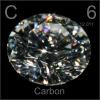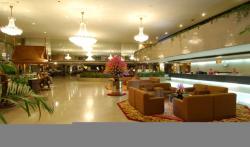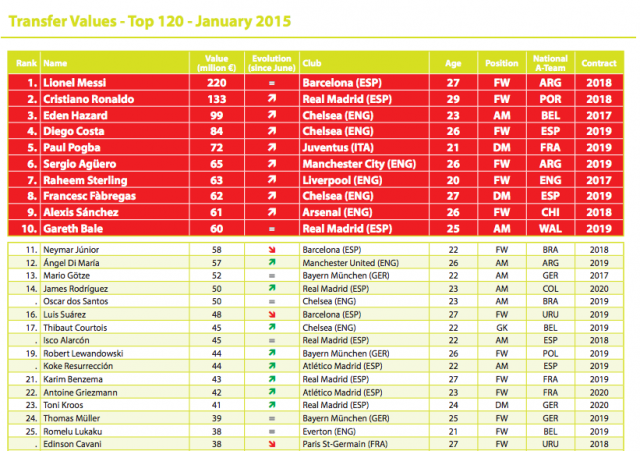Search the Community
Showing results for tags 'most'.
-
Old article but do you agree? https://www.quora.com/Which-citizenship-is-the-hardest-to-obtain/answer/Ravindra-357 Here are eight countries where it's most difficult to become citizen : 1- Vatican City You can become a citizen if you are a cardinal living in the Vatican City or Rome, or if you live in Vatican City because you are an official worker of the Catholic Church. 2- Bhutan You can apply for the citizenship after living in the country for 20 years & you have to meet a list of requirements which includes no record of speaking or acting against the king or country. 3- Qatar If you have been a legal resident of Qatar for 25 years without leaving the country for more than two consecutive months, you can apply for the citizenship. Qatar only naturalizes about 50 foreigners a year. 4- Kuwait After living in Kuwait for 20 years or 15 years for citizens of other Arab countries, you can apply for the citizenship. But you have to be muslim by birth or converted. If you are converted, you must have been practicing for five years & have to speak Arabic fluently. 5- Liechtenstein If you want to become a citizen, you have to live in Liechtenstein for at least 30 years or if you are married to a Liechtenstein citizen & already lived in the country, then the time period is shortened to five years of marriage. 6- United Arab Emirates If you want a citizenship of UAE, you must have legally resided in the country for 30 years. Arab citizens from Oman, Qatar & Bahrain can apply for citizenship after three years of residency. Arabs from other countries are eligible for citizenship after seven years of residency. 7- Switzerland According to the new law of Switzerland, you must have to lived in the country for 10 years & have a working permit called a C permit. The C permit allows you to live & work in the country. 8- China The law of China allows the foreigners to become citizen of the country if they have relatives who are Chinese national, have settled in China. If you don’t have Chinese relatives in a country, your chances of becoming a Chinese citizen are less. https://www.quora.com/Which-country-gives-permanent-residency-the-fastest/answer/Ravindra-357 Here are five countries in which establishing permanent residency is easy : 1 - Belgium If you live in Belgium for five continuous years, you can apply for permanent residency. Becoming a citizen adds to that the ability to leave the country for more than two years at a time 2 - France You can get permanent residency or apply for citizenship after living in the country for five continuous years. A permanent residency is renewed after ten years that allows you the right to education, healthcare, and worker's rights at jobs, but doesn't allow you to vote. Obtaining France’s citizenship also makes you a citizen of the EU. 3 - Panama Panama is also very welcoming to those who are wealthy and those who want to invest in deforestation programs. Citizenship can only be obtained after five continuous years of residency or three years for foreign spouses of Panamanian citizens. 4 - Singapore Singapore is one of the easiest countries in which a permanent residency has been estabilished. All you have to do is to apply for an employment pass, be the spouse or child of a Singapore citizen, plan to make an investment in the country, or you just have to be a permanent resident of the country for two or more years. 5 - Brazil If you plan to invest at least $50,000 in a business or real estate of the country, you can apply for an Investor’s Visa. Or you must have resided in the country continuously for 10 to 15 years for getting the permanent residency.
- 30 replies
-
- 2
-

-
- citizenship
- easy
- (and 11 more)
-
Anyone here went for the launch last weekend? Already have 3 buyers for this 3.6 million car.
-
The words 'pork fat' and 'nutritious' don't quite go together, but that may soon change, given a surprising finding by scientists which was first published in 2015 but went viral only recently. According to a BBC report in January, researchers who analysed more than 1,000 raw foods found that lard is among the top 10 foods which provide the best balance of a person's daily nutritional requirements Pork fat was ranked 8th in a list of 100 foods, with a nutritional score of 74 - the higher the number, the more likely it will meet your daily nutritional needs. It is listed as containing "a good source of B vitamins and minerals" as well as being "more unsaturated and healthier than lamb or beef fat". Here are the top 10 most nutritious foods and their nutritional scores, according to the study: 1. Almonds, 97 2. Cherimoya (a type of fruit), 96 3. Ocean perch (a deep-water fish), 89 4. Flatfish, 88 5. Chia seeds, 85 6. Pumpkin seeds, 84 7. Swiss chard, 78 8. Pork fat, 73 9. Beet greens, 70 10. Snapper, 69 In addition, pork fat contains oleic acid with 60% monounsaturated fat. Monounsaturated oleic acid has been found to be good for the heart, arteries and skin, and also helps to regulate hormones. As a comparison, butter contains 45% monounsaturated fat But as with many things, moderation is key. Excessive consumption of fat can lead to obesity, according to a Singapore-based nutritionist interviewed by the Chinese daily. "As long as it's pure and unprocessed, it can be beneficial for the body," said the nutritionist. But she recommends not consuming more than six spoonfuls a day, and stresses the importance of a balanced diet: "For example, meat is a better source of Vitamin B than fat, and essential omega-3 fatty acids are obtained from other foods." Still, it's good news for the rest of us who can tuck into our favourite roast pork or kou rou bao (pork belly bun) with just a little less guilt.
- 78 replies
-
- 11
-

-
Globally well known for it's expensive cars , but in the safety department it is still far off from what is tested as standard. Looking into Passenger safety NCAP & ANCAP test are conducted on various cars , achieving 4 / 5 Stars had became a mile stone for car manufacturers to achieve. It is not certain how many car buyers do pay attention to this detail , or there are buyer just skim through. Focusing in Cat A vehicle most of the Cars sold are "suppose" to achieve 5 star rating , even a small size vehicle like Honda Jazz is able to achieve it . ANCAP = https://www.ancap.com.au/safety-ratings/5-star Euro NCAP =http://www.euroncap.com/ But here comes the bad news , in order to achieve 5 Stars most of the following criteria or features are install as standard : Dual frontal, side chest, and side head-protecting airbags (curtains) for the 1st and 2nd row are standard. Antilock brakes (ABS) electronic brake distribution (EBD) electronic stability control (ESC) hill launch assist and reversing collision avoidance are also standard* Advanced seat belt reminders are fitted to all seats.* * Clarification require Quite a number of favorite brands comes basic only with 2 airbags , some even without ESC. Paying so much for a car but still lacking in such detail is quite disappointing . We may have a world class ERP system , TOP notch COE system to control number vehicle on the road , Closing on new implementation on Carbon emission , but still a league way behind in terms of Car safety standards. Really hope LTA and even AD collaborate hand in hand to increase our car safety standard while maintaining a reasonable pricing across the board . Not just focusing on COE , car margin while neglecting on the safety features .
-
I am so going to open one x interesting thread every month. So my interesting thread of the month is this! But need to put some disclaimers, due to this is a public forum and also we have a group of female members, please be tactful and refrain yourself from posting anything that is offensive arh. Let's just make this a positive and interesting topic. So. . . As the title goes, what is your favorite style of massage? Thai Massage? Oil Massage? Swedish Massage? Shiatsu Massage? Reflexology? Hot Stone Massage? Osim Massage Chair?(haha) My own personal take is i kinda like oil massage and reflexology. Oil massge is the oil fragrance and i like the no friction kneading. Reflexology is because i like how it feels after the foot massage. My feet seems very very light! I never tried hot stone before thou. hahah.
- 294 replies
-
- 5
-

-
this one not expatriates or what. this one is general cost of living http://www.thrillist.com/travel/nation/the-most-expensive-city-in-the-world-is-singapore-worldwide-cost-of-living-2014-report?ref=facebook-869
- 789 replies
-
- 6
-

-
- singapore
- most expensive
- (and 4 more)
-
For me....its used to be online gaming (like 6-7 years ago)
- 209 replies
-
- most
- extravagent
- (and 4 more)
-
Hi MCFers, I am here to announce another piece of good news to all of you. On top of having the Threads of the Month Contest, we will be introducing the ‘Most Worthy Thread of the Month’ Contest. We’re seeing some really good and quality threads/posts by some of the members here but unfortunately, they’ve come short of winning ‘TOTM’ due to popularity votes. So this is where this contest comes in. Think of it as a wildcard. Let’s cut to the chase. What’s deemed worthy? Must it be car related? Anything under the sun. We’re not kidding. If you’re a wanderlust, it could be your own travel thread complete with pictures, advice, tips on how to travel better, cheaper, and smarter so everyone can explore the world on a budget too. If you’re a hardcore car enthusiast, which is what this forum is all about, share with members your crazy DIY fixes, modifications, latest improvisations etc. Points to note: - There will only be ONE winner for Most Worthy Thread of the Month - It will be selected by the Internal Moderators - It is possible to win both Thread of the Month and Most Worthy Thread of the Month - Winner will be announced by the 15th of every month - No winner will be announced for any particular month if no threads are selected PRIZE: $200 Petrol or NTUC Vouchers So.... First Winner for Most Worthy Thread of the Month (Moderator's Choice) Congratulations to @Vratenza for being the FIRST winner for Most Worthy Thread of the Month – Wheel Spacer Installation DIY http://www.mycarforum.com/topic/2705970-wheel-spacer-installation-diy/?hl=%2Bwheel+%2Bspacer Your effort in making the thread informative and instructional has not gone unnoticed! We will contact you shortly via PM .
- 189 replies
-
- 22
-

-
Wow! Most Expensive now to Most Powerful Red Dot Passport Singapore passport becomes 'most powerful' in the world......CNA says one......... http://www.channelnewsasia.com/news/singapore/singapore-passport-becomes-most-powerful-in-the-world-9341920 INGAPORE: For the first time, Singapore is the single most powerful passport in the world, thanks to a little help from Paraguay. By removing visa requirements for Singaporeans, Paraguay helped Singapore edge out Germany for the top spot in a passport index developed by global financial advisory firm Arton Capital. Read more at http://www.channelnewsasia.com/news/singapore/singapore-passport-becomes-most-powerful-in-the-world-9341920
-
A petrol engine making more torque than diesel equivalent?? The dream have come true... Mercedes-AMG Details Most Powerful 4-Cyl Ever, Makes 416 HP 500 Nm Look for this engine in the A45, CLA 45, and GLB 45 in the near future. Mercedes-AMG finally announces the official specs for its new 2.0-liter turbocharged four-cylinder engine that goes under the internal designation M 139. In the higher-spec S trim, the mill offers 416 horsepower (310 kilowatts) and beats the previous-gen A45 with 375 hp (280 kW) to take the title as world's most powerful factory-offered four-cylinder engine ever available in a production vehicle. If we want to split some very thin hairs, the Mitsubishi Lancer Evolution FX-440 MR made 440 hp from its 2.0-liter four-cylinder, but production amounted to just 40 units exclusively for the UK. Specifically, the S version of the M 139 makes 416 hp at 6,750 rpm and 500 Newton-meters of torque between 5,000 and 5,250 rpm. The redline hits at 7,200 rpm. There's also a standard variant of the M 139 that produces 382 hp at 6,500 rpm and 480 Newton-meters between 4,750 and 5,000 rpm. The redline is the same 7,200 rpm. Both versions of the M 139 use a twin-scroll turbocharger. The S variant can produce up to 30.5 psi (2.1 bar) of boost, but the standard model goes to 27.6 psi (1.9 bar). To get into the nitty-gritty details, The M 139 weighs 160.5 kilograms. The four cylinders each have a bore of 83 millimeters and stroke of 92 millimeters. The mill features both direct injection and indirect injection through the intake manifold. There are two overhead camshafts operating on 16 valves, and the drive train is capable of tweaking the valve operation on both sides, in addition to Camtronic valve opening adjustment for the exhaust side. The M 139 engine will be available in a variety of models in the near future. The first of them to debut should be the new A45.
- 41 replies
-
- 12
-

-
- mercedes-benz
- mercedes
-
(and 6 more)
Tagged with:
-
10 Most listened song/soundtrack when i am driving. . . My own top 10 fav songs while i am driving. Happy - Pharrell WIlliams My Love - Route 94 ft Jess Glynne Young & Beautiful - Lana Del Rey Black Skinhead - Kanye West The Tide is High - Blondie Every Breath You Take - The Police Short Change Hero - The Heavy Crave You - Flight Facilities Wind Of Change - Scorpions Square Rooms - Magic Sliver [drivingcar] [drivingcar]
- 63 replies
-
- 3
-

-
- songs
- soundtrack
-
(and 6 more)
Tagged with:
-
Based on my own opinions, these are few brands which I feel have made tremendous improvements and progress to their car making etc. Kia Mazda (since last 5 to 6 years) Especially their new Mazda 3 and 6 are quite awesome. Hyundai Peogeot (their latest series of car are very exciting indeed) Reliable or not, maintenance high or not, still unknown Opel and Renault - their latest models are really heart stealers. Very sleeze and timeless. Reliable or not.. Another issue as I have not tried owning one before. Here are some brands which I think quite disappointing in recent years. Toyota - maybe still as reliable but somewhat losing much of their appeals in terms of their designs and overall. It still cannot do away with the reputation of producing uncle's cars model that appeal to more mature people. My personal opinion. Honda, mobilo, shuttle, grace and even the new civic.. Looks kinda awkward and it seems they are trying too hard but too overkill. The new civic looks overkill and trying too hard, and it does not look very modern and rather backwards.. Personal opinion again. Nissan.. Well as always, they are never the best among the top and always churning out bulky, fatty, mature looking cars that not really appealing to younger buyers. Mitsubishi..their peak was the Glx and ex Lancer era.. After which... It seems really difficult to accept. Maybe they are gg for higher end suv or mpv now.. But their sedan's series is quite pathetic. Suzuki and surbaru... Maybe surbaru are going better but still 2nd tier or even 3rd tier when comes to those mentioned.
- 120 replies
-
- 5
-

-
- brands cars
- improved
-
(and 2 more)
Tagged with:
-
How powerful? 2,000 PS and 1,700 Nm How fast? 0-100 km/h <3 seconds and top speed >340 km/h At first known only by its Lotus Type number - Type 130 - the car has been christened the Lotus Evija (pronounced 'E-vi-ya'). As a name it is derived from variations of Eve, and means 'the first in existence' or 'the living one'. It is highly appropriate; Lotus has an unquestionable reputation for its pioneering approach in both automotive and motorsport. As the first all-electric British hypercar, the Lotus Evija continues that story of innovation. It also signals the start of an exciting new chapter for Lotus under the stewardship of Geely, the fastest growing automotive group in the world. Lotus Cars CEO Phil Popham said: "Evija is the perfect name for our new car because it is the first all-new car to come from Lotus as part of the wider Geely family. With Geely's support we are set to create an incredible range of new cars which are true to the Lotus name and DNA." A stunning exterior inspired by nature The most striking element of the Lotus Evija is its exterior. From every angle the full carbon fibre bodywork is stretched taut, appearing shrink-wrapped over the mechanical components. Crouching low to the ground, with a ride height of just 105 mm, the pronounced muscular haunches envelop the teardrop cabin that sinks between them. Taking inspiration from the aeronautics industry, the exterior is a perfectly proportioned blend of fluid forms and crisp lines. This is clearly illustrated by the gently curved but sharp leading edge of the bonnet, which is reminiscent of so many classic Lotus road and race cars. Cues for the Lotus Evija's surface language was also taken from nature. Russell Carr, Design Director, Lotus Cars, commented: "During the initial design stage we spent many hours studying images of geological forms - rocks that had been carved by nature over the centuries. We believe we've captured these beautiful, intriguing and elemental lines within the Evija." True to Lotus founder Colin Chapman's core belief that every component should serve multiple purposes, the exterior design is also exceptionally efficient on every level. The most obvious example of this - and unquestionably the most dramatic element of the exterior - is the Venturi tunnel which pierces each rear quarter. Inspired by Le Mans race cars, they optimise air flow by directing it through the bodyshell. Aside from creating a breath-taking presence, this design concept - known as 'porosity' - aids the delivery of high-energy air flow to the rear of the car. This in turn counteracts the low pressure behind the car to reduce drag. Furthermore, the Venturi effect inside the tunnels pulls air through the rear wheel arch louvres, maintaining air quality in the diffuser. When viewed from the rear of the car, each tunnel is edged with a red LED to create a striking ribbon-style light signature. The result is a stunning visual effect that's akin to the afterburners on a fighter jet, especially when seen at night. As an extra detail, an LED hidden within each tunnel illuminates its interior. The directional indicators are incorporated into the corners of the ribbon, while the reversing light is provided by the illuminated 'T' of the 'LOTUS' wordmark above the integrated charging flap. Another key feature of the Evija's sophisticated aerodynamic system is the bi-plane front splitter. It's another illustration of form and function working perfectly in tandem. Designed in three sections, the larger central area provides air to cool the battery pack - mid-mounted behind the two seats - while the air channelled through the two smaller outer sections cools the front e-axle. Lotus aficionados may notice a respectful nod to the iconic Type 72 Formula 1 car, with its square front central section and two side wings. Active aerodynamics for exceptional downforce The Lotus Evija is the first Lotus road car to ever feature a full carbon fibre chassis. Moulded as a single piece for exceptional strength, rigidity and safety, the full length of the underside is sculpted to optimise downforce. It includes an integrated air diffuser which extends from under the B-pillars to the rear. Active aerodynamics are deployed in the form of a rear spoiler, which elevates from its resting position flush to the upper bodywork, and an F1-style Drag Reduction System (DRS). Both are deployed automatically in Track mode, though can be deployed manually in other modes. The absence of traditional door mirrors plays a part in reducing drag. Cameras integrated into the front wings are electronically deployed on unlock, while another camera built into the roof provides a central view. Images are displayed on three interior screens. Advanced pure EV powertrain means record-breaking power With target figures of 2,000 PS of power and 1,700 Nm of torque, the Lotus Evija is the world's most powerful production road car. Key to that exceptional power output is the 2,000 kW lithium-ion battery, supplied with its management system by Williams Advanced Engineering (WAE) as part of a joint venture with Lotus to collaborate on advanced propulsion technologies. WAE won a 2018 Queen's Award for Enterprise for translating its EV expertise from the race track to road-going vehicles. The battery pack is mounted centrally behind the passenger compartment, and its cover is visible through the glass rear screen. This positioning delivers significant advantages in terms of styling, aerodynamics, packaging, weight distribution, occupant comfort and dynamic handling. It also supports fast and convenient servicing and maintenance. Furthermore, the set-up has been designed so that in the future alternative battery packs - for example, to optimise track performance - can be easily installed. Power is fed from the battery pack to a bespoke in-line axial arrangement of two high-power density e-motors. These feature integrated silicon carbide inverters and epicyclic transmission on each axle of the four-wheel drive powertrain. The motors and inverters being supplied by Integral Powertrain Ltd. Four exceptionally compact, extremely light and highly efficient single-speed, helical gear ground planetary gearboxes transfer power to each driveshaft. Measuring a mere 100mm in depth, each gearbox comes packaged with the e-motor and inverter as a single cylindrical Electrical Drive Unit (EDU). With a target power of 500 PS per e-motor, this is the most efficient and elegant engineering solution to deploying so much power with precision. Torque-vectoring, enabled by the four e-motors, provides exceptional dynamic response and agility on the road. This fully automatic, self-adjusting system can instantly distribute power to any combination of two, three or four wheels within a fraction of a second. In Track mode the ability to add more power to individual wheels enables the radius of corners to be tightened, potentially reducing lap times. The Lotus Evija is equipped with ESP stability control to ensure safety in all road conditions, with further grip provided by the four-wheel drive system. A pure steering feel - a vital ingredient of every Lotus - is assured via an electro-hydraulic system. The car is built on a one-piece motorsport-inspired carbon fibre monocoque chassis. It is supplied by CPC, the Modena, Italy-based world-leader in composite technology. Constructed from multiple carbon plies, the manufacturing process is identical to that of an F1 chassis, and ensures the lightest, stiffest, safest and most technically advanced Lotus road car platform ever built. The total weight of the monocoque tub is a mere 129kg. This chassis, coupled with innovative engineering and clever packaging throughout every element of the Lotus Evija's powertrain, has contributed to the class-leading target weight of 1,680kg in its lightest specification. Precision performance guaranteed As with every Lotus, the Evija is 'For The Drivers' and its searing pace is delivered in one seamless, sustained surge. The 0-62 mph (0-100 km/h) sprint is completed in under three seconds, while the top speed is in excess of 200 mph (340 km/h). These headline statistics only tell part of the car's performance story. Matt Windle, Executive Director, Sports Car Engineering, Lotus Cars, explained: "The Lotus Evija has astonishing acceleration at higher speeds. It takes less than nine seconds to reach 300 km/h which is better than any other direct competitor." Further performance figures include acceleration from 100-200 km/h in less than three seconds, and 200-300 km/h in less than four seconds. Power can also be delivered over a sustained period. The car's advanced aerodynamics and four-radiator cooling package keep the battery at an optimum temperature. It means that the Lotus Evija is capable of being driven flat out with no derate for at least seven minutes in Track mode. Matt Windle continued: "With the Lotus Evija we have an extremely efficient electric powertrain package, capable of delivering power to the road in a manner never seen before. Our battery, e-motors and transmission each operate at up to 98% efficiency. This sets new standards for engineering excellence." As part of the development and validation process, Lotus and Williams Advanced Engineering have conducted thousands of hours of virtual testing and digital analysis. This comprehensive programme will ensure the car's meets its performance targets and exceeds customers' expectation. As a pure EV the Evija will be ultra-quiet at low speeds. During this time regulations require that it emits a digitally created sound - transmitted via a front-mounted speaker - which will alert pedestrians to its presence. While the flowing lines create a very organic look, Russell Carr, Design Director, Lotus Cars, believes that it is important that the car visually conveys its technical achievements. "When you look through the rear glass, you can see the battery pack cover and the in-board suspension. This link between the human and the precision engineering is essential for a Lotus. We want people to have the sense that they are engaging with the power and performance of the car. We refer to it as technology with soul." A revolution in charging Not only does the Lotus Evija feature the world's most powerful automotive drivetrain, it also boasts the world's fastest charging battery. Thanks to the partnership with Williams Advanced Engineering, the battery has the ability to accept an 800kW charge. Although charging units capable of delivering this are not yet commercially available, when they are it will be possible to fully replenish the battery in just nine minutes. Using existing charging technology - such as a 350kW unit, which is currently the most powerful available - the Evija's charge time will be 12 mins to 80% and 18 mins to 100%. The car's range is 250 miles (400 km) on the WLTP Combined Cycle, or 270 miles on the NEDC Combined Cycle. Lotus is in discussions with external suppliers on a charging solution for customers. The CCS2 charging socket is hidden behind a vented flap at the rear of the car. In the same location is a small plaque, reminding customers of the Britishness of the Evija. Motorsport-inspired interior is a technical tour de force The interior of the Lotus Evija is as dramatic as the exterior. Inspired by the technical precision of race car engineering, the dominant characteristic of the cabin is the 'floating wing' dashboard which can be glimpsed from outside through the windscreen. The design also echoes the porosity of the exterior. "The shape is inspired by the company's prototype racing cars of the late Fifties and early Sixties," explained Russell Carr, Design Director, Lotus Cars. "It has a beauty and an elegance to it, and represents a typically Lotus approach because it performs multiple functions. It houses the instrument panel and air ducts, and is also an integral structural support. It reinforces Colin Chapman's cast-iron rule that no Lotus component goes along for a free ride." Access to the cabin is through the two dihedral doors. Handle-free to preserve the sculpted exterior, they're operated via the key fob. It's the first time Lotus has used such doors, and while they make for a moment of dramatic theatre they also provide maximum space for getting in and out. An exceptional attention to detail - as people would expect from Lotus - is at the heart of the interior. For example, visible carbon fibre surfaces enhance the sense of light weight, while a thin metal band - engraved with the words 'For The Drivers' - runs centrally through the squab of both seats. Once in the car, a switch in the roof console closes the doors. The location aids the minimalist layout of the main control panel and prevents them being activated accidentally. Russell Carr, Design Director, Lotus Cars, explained it's in tribute one of the most iconic Lotus cars, commenting: "Versions of the Lotus Esprit Turbo featured a huge roof console in the late Seventies and early Eighties. It's not something you might expect on a contemporary hypercar but Lotus fans will love the connection." Inside, the cabin strikes the perfect balance between the precise functionality of a track car and the comfort of a road car. The driving position is fully adjustable to accommodate the greatest range of occupants. The elegant carbon fibre shell seats are hand-trimmed with thick Alcantara-finished pads, and feature manual fore / aft adjustment plus electric back operation. The steering column is manually adjustable for both rake and reach. Three-point seatbelts are fitted as standard, with four-point harnesses an option. Built into the bodyshell, close to the occupants' hip point, are two bespoke storage areas. The design of the steering wheel, similar to that found in an LMP or F1 car, further reinforces the Evija's sporting intentions. The outer ring is finished in Alcantara as standard with leather available as an option. Buttons are grouped in an intuitive manner and govern functions including phone use, cruise control and DRS deployment. Mounted centrally at the base of the wheel's hub is the mode controller. There are five modes - Range, City, Tour, Sport and Track - with various of the car's performance features activated or deactivated depending on which is selected. Ahead of the steering wheel is a state-of-the-art digital display, providing the driver with key information such as mode, battery charge and remaining range. It is the car's only screen, putting all necessary information in one place. The screen displays essential functions only, with information appearing as required when the appropriate button is pushed, then fading when no longer needed. Further controls are located on the floating 'ski slope-style' centre console, which features touch-sensitive haptic feedback buttons. Each is integrated in hexagonal recesses to help guide the driver's fingers. As the light plays over the surface it creates an almost organic visual effect. The driver can also interact intuitively with the car's technology via a control wheel. The honeycomb design of the buttons is replicated on indicator stalks and on the surface of the aluminium foot pedals. The Evija's cabin has been deliberately designed so that the occupants feel they are at one with the vehicle. "At the core of the appeal of any Lotus is that the driver is in sync with the car at all times and almost feels as if they are wearing it," said Russell Carr, Design Director, Lotus Cars. "Looking out from behind the wheel, it's a wonderfully emotional moment to be able to see the bodywork outside, both in front and behind you. That's something we hope to enhance in future Lotus models." Climate control and a premium infotainment system are fitted as standard. Customers can seamlessly integrate their smartphones via Apple CarPlay and Android Auto, accessing their own music and navigation. Extreme track performance and on-road comfort Calibrated to provide the optimum blend of extreme track performance and on-road comfort, the Lotus Evija's motorsport-derived suspension features three adaptive spool-valve dampers for each axle. Two are corner dampers with a third to control heave. These are mounted in-board to optimise the aerodynamic performance. They are manufactured by Multimatic, specialists in developing high-performance suspension technology for on-road, off-road and motorsport applications including Formula 1. Magnesium wheels provide optimum lightness and strength, and are sized 20 and 21 inches at the front and rear respectively. They are shod with Pirelli Trofeo R tyres, developed specifically to achieve ultimate performance. To deal with the Evija's extreme performance, the car is equipped with a forged aluminium AP Racing braking system with carbon ceramic discs front and rear. Technology: World-first laser lighting The Lotus Evija is the first production road car in the world to feature laser lights for both main and dipped beams. Produced by Osram, the lighting modules are very compact and will provide an outstanding view of the road or track ahead. The strikingly thin vertical headlamps provide the perfect balance of crystal-like beauty and a highly technical design. Inside the lenses, unique 'wing-like' elements form the daytime running lights and directional indicators. Technology: Connected to the cloud The Lotus Evija is the first Lotus to provide drivers with a full suite of digital connected infotainment, which will benefit from over-the-air software updates. A powerful on-board modem enables communication to the cloud, and the driver can interact with that data through a Lotus smartphone app. The app will enable drivers to monitor their Evija from anywhere in the world, for example, to check the battery charge status and driving range. It will also support remote use of air-con, to heat or cool the cabin ahead of the next drive. The Evija's infotainment system includes a chronograph to allow the driver to record their lap times. Connection to the cloud means they can view their performance while at the track and recall previous sessions through the app. The ultimate in personalisation Lotus will offer Lotus Evija customers an unparalleled level of personalisation, enabling them to specify the car exactly as they wish. This will include the opportunity to select unique paint finishes, interior trims and detailing. Marquetry-style badging will provide further bespoke opportunities. Lotus has developed the ability to inlay metal elements directly into the carbon fibre bodyshell, so that the badge sits completely flush with the bodywork. Currently the Evija carries a partial Union Flag badge on the C-pillar, signifying its status as a British-built hypercar. However, this could be another flag, a family crest or personal logo. "This marquetry-style badging is similar to that associated with traditional cabinet-making, where you inlay different colours of wood," explained Russell Carr, Design Director, Lotus Cars. "On the Evija it's really is up to the customer to choose whatever materials and designs appeal to them." Lotus is also developing a comprehensive programme of bespoke experiential activities for Lotus Evija owners. These will include VIP track days and other high-performance motorsport opportunities. Putting the customer first The Lotus Evija has been designed and engineered at Lotus' historic home in Hethel, UK, and production will begin in a new dedicated on-site manufacturing facility during 2020. A maximum of 130 examples will be built, guaranteeing exclusivity to match the stunning looks, ground-breaking technology and world-beating performance. They will be sold directly to customers by Lotus, with the global network of 220 retailers in support. Plans to service and maintain the car for each owner are currently in development. The Lotus Evija is priced from £1.7m plus duties and taxes. A £250,000 deposit secures a production slot. Built in Great Britain, great for Great Britain The UK is already recognised as a world-leader in high-performance automotive production. Lotus has been at the heart of that success for 71 years. The Lotus Evija will further cement the global status and reputation of this important UK industry sector, and its associated and diverse supply chain. However, as the first all-electric hypercar from a British car maker, the launch of the Evija sees Lotus deliver an opportunity for new and exciting expansion of the sector. Increasing consumer awareness and demand for the astonishing performance available through EV powertrains means new growth and new skills, and Lotus intends to be key player in that revolution. A true Lotus in every sense The Lotus Evija is faithful in concept and detail to the pioneering principles which company founder Colin Chapman used to build his first car in 1948. In common with every new Lotus, the Evija has been seen by members of the Chapman family. At a private viewing of the Evija, Hazel Chapman - Colin's widow - commented: "It's very beautiful and I can't wait to see it on the road." As with every Lotus, the Evija features the initials ACBC (Anthony Colin Bruce Chapman) in its badge. Chapman guided the company to astonishing levels of success on the road and track before his untimely death in 1982, aged just 54. Seven Formula One constructors' championships and six Formula One drivers' titles tell only a small part of the story. His pioneering approach to engineering led to an incredible range of world-first technical innovations. Type 14: the world's first composite monocoque production road car (Elite, 1957) Type 25: the world's first fully-stressed monocoque F1 car, and the first Lotus to win F1 world championship (1963) Type 72: the most successful F1 car of all time and the blueprint for F1 car design for many years (Championship winner in 1970, 1972 and 1973) Type 78: the world's first 'ground effect' F1 car (1977) Type 88: the world's first carbon fibre F1 car (1981) Type 92: the world's first active suspension F1 car (1983) Type 111: the world's first aluminium and bonded extrusion construction production car (Lotus Elise, 1995) Type 130: the Lotus Evija, the first fully electric British hypercar (2019)
-
What will be Singapore's most in-demand jobs for 2019. Good time to take stock on where the sunset industry is and which job to switch to. Just that there is no plotted map for someone to refer to in order to get there other then the security pathway. https://www.straitstimes.com/business/economy/what-will-be-singapores-most-in-demand-jobs-for-2019 SINGAPORE - Singapore hiring is likely to see stable growth in 2019, with top jobs in demand to be analytical and data-driven in nature, according to the latest annual salary survey by recruitment firm Robert Walters. These include data scientists, product management, user experience (UX) designers, and digital roles, with cyber security to remain a major focus, in the wake of recent high-profile cyber attacks in Singapore. The report also found that job movers in Singapore can expect pay increments of 5 per cent to 15 per cent in 2019, and larger hikes can be expected for candidates with specialised skill sets in IT, digital and financial services. Among employers, human resource (HR) professionals with strong experience in HR technologies, as well as talent acquisition professionals for the technology sector will be sought after. Hiring levels for jobs in financial services will also remain positive, with a continued focus on technical and commercial skill sets. Demand will be high for skilled contracting professionals, trade finance professionals in corporate banking, investment and research analysts, and IT professionals in the financial services sector, said Robert Walters. In addition, sales and marketing professionals with big data, digital, e-commerce and transformation experience will be in increasing demand as companies continue their digitalisation efforts. With a limited talent pool, competition will intensify for specialists such as Singaporeans qualified with international and cross-border experience and knowledge in areas such as product management, technology law and blockchain, as well as supply chain and procurement professionals with niche skill sets. According to Robert Walters, the accounting and finance sector will see a demand for professionals with tax compliance and change management expertise, with skill sets in demand including a strong technical understanding and familiarity of regulatory rules, stakeholder engagement and management skills. In the engineering sector, more jobs are expected to emerge as oil and gas prices recover, said Robert Walters. Strong demand is anticipated for professionals in the semiconductor, medical devices, consumer electronics and manufacturing industries, especially in the research and development departments. "The best candidates look for roles they can grow into. Employers who can demonstrate that they have the right teams and systems in place to support a candidate's success in a role are better positioned to secure top talent," said Mr Rob Bryson, Robert Walters managing director for Singapore.
- 15 replies
-
- 2
-

-
- retrenchment
- employability
-
(and 6 more)
Tagged with:
-
Neighbours may exchange greetings and make small talk, but that's as far as many Singaporeans go. Displays of trust, such as looking after house keys or lending and borrowing items, are seldom heard of in Housing Board estates. Residents' interactions also tend to be "incidental and minimal", according to study findings released by the HDB and the National University of Singapore Centre of Sustainable Asian Cities and Sociology department. These findings, however, do not surprise experts. "The more densely packed we are, the more we value privacy," said sociologist Paulin Straughan. "Modern society prides itself on being independent. As a result, we don't make the additional effort to reach out to our neighbours. Unlike the olden days in a kampung, when neighbours needed each other to borrow rice, for instance. "Combined with the work stress that comes with urban living, when you retreat to the sanctity of your own home, you want it to be your own private sphere. Many of us put up a sub-conscious barrier and it becomes a norm." Associate Professor Straughan added that such behaviour is prevalent in cosmopolitan and urban cities. In a bid to find out how design and amenities have contributed to interaction among residents, the year-long study surveyed about 2,200 residents in five HDB towns. Respondents were asked to score their frequency of interactions with neighbours, from a score of one (never) to five (daily). Overall, they ranked "exchange of greetings/ small talk" as the most frequent activity, with a mean score of 3.47. Safekeeping of house keys and borrowing and lending household items ranked the lowest at 1.11 and 1.25 respectively. MP for Pasir Ris-Punggol GRC Gan Thiam Poh said that he has noticed this lack of neighbourliness in the less mature estates, where neighbours have spent less time together: "To my surprise, I have met residents who don't even know their next-door neighbours." Ms Ellen Lee, MP for Sembawang GRC, said that while most residents are on cordial terms, few are extremely close. But she added that there are the "rare gems" who have potluck parties together, take care of one another's children and collect their neighbours' newspapers or water their plants when they are travelling. Mr Gan attended a recent wake where he learnt of a Hougang resident who had bought breakfast for her sickly neighbour every day before the latter died. "She didn't even ask to be paid back. It was very heartwarming - I think such a good kampung spirit should be encouraged," he said. Sales promoter Soon Kam Mee, who lives in a four-room flat in Bishan, said she is close to her neighbour on the 18th floor, partly because their children went to the same kindergarten and primary school. The two buy each other souvenirs when they travel. But the 56-year-old does not interact much with her immediate neighbours on the eighth storey, as they are "either very busy with work or seldom at home". In order to improve bonding between residents, the HDB plans to explore ideas yielded from the study, which involved six focus group discussions with residents. One includes turning public walkways through housing estates into "social linkways" by adding seats or exhibits to encourage people to linger when they meet a neighbour. Another is a one-stop hub for community activities, or a "neighbourhood incubator". The two initiatives will be piloted in Tampines Central from this month until May next year. If successful, they will be adopted at the new Bidadari and Tampines North estates. Prof Straughan believes infrastructure can play a big part in fostering cohesiveness. "If you allow common congregation spots where people can do things together, it will help," she said. "But at the end of the day... it's hard to change human behaviour patterns, so it can't be a short-term effort." Source: http://www.straitstimes.com/news/singapore/more-singapore-stories/story/most-neighbours-just-say-hi-and-bye-20140608
- 153 replies
-
- hdb
- neighbours
-
(and 3 more)
Tagged with:
-
Asking out of curiosity only. Does anyone know what is the record for a private house sold in Singapore? I am talking about houses for private residence so please don't tell me Istana
-
http://www.sgcarmart.com/used_cars/info.ph...084&DL=2318 418k for a used GT-R.. can anyone explain why 200k difference?
- 22 replies
-
https://edition.cnn.com/travel/article/suspension-bridges-frightening/index.html It's just physics. Friendly civil engineering. These are the fourteen:- 1. Frighteningly transparent: ZHANGJIAJIE GLASS BRIDGE Where: Zhangjiajie, China When: Opened in 2016 Whoa: World's highest glass-bottomed suspension bridge Anyone can stare out of a very high window. But standing on one -- coaxing your feet onto a glassy surface suspended above nearly 1,000 feet of air takes some serious spine. Especially in Hunan, home to the world's record-setting glass-floored pedestrian bridge. Hanging between a pair of mountain cliffs in Zhangjiajie National Forest Park's Grand Canyon Scenic Area, this 1,410-foot-long span was until recently the world's longest glass bridge. But ask anyone venturing onto its triple layered, steel-frame-supported, sledgehammer-tested, crystal-clear span levitating 984 feet above an all too visible canyon floor. It's still the highest.
- 26 replies
-
- 1
-

-
- suspension
- bridges
-
(and 3 more)
Tagged with:
-
http://v.youku.com/v_show/id_XMTU5ODM3MDUy.html The video is in mandarin but the graphical effect should be pretty entertaining for most. Enjoy your meal:)
- 5 replies
-
- 1
-

-
- Wild
- Collection
- (and 4 more)
-
Yahoo reported: World's most haunted hotels Home to the paranormal and unexplained, haunted hotels never fail to fascinate even the biggest sceptics.These ghostly tales from hotels around the world are enough to send shivers down the spine of even the bravest soul. First World Hotel (Genting Highlands, Malaysia) No stranger to the locals, Genting Highlands is said to be one of the most haunted places in Malaysia. Also home to the famous casino resort, there has been numerous gambling-related suicides over the years. First World Hotel is infamous for its paranormal activities - guests who have stayed there would hear wailing spirits in the middle of the night, some have even seen ghostly apparitions jumping over the cliff only to vanish into thin air - the most famous account is a headless woman roaming around the corridor, apparently looking for her missing head. Asia Hotel (Bangkok, Thailand) With dimly lit corridors and lights that flicker in the middle of the night, many hotel guests have encountered ghostly apparitions sitting on a sofa, staring at them and then vanish into thin air. The Roosevelt Hotel (Los Angeles, US) The living A-lists haunt the Chateau Marmont, while for the celebs of the underworld, like Marilyn Monroe and Montgomery Clift, chose The Roosevelt as their favourite joint. Wahhhhhh........ MY First World Hotel made it into top 13 most haunted hotels in the world.... Those who still want to meet Marilyn Monroe can proceed to The Roosevel Hotel .. The rest of the 10 haunted hotels are found in the link below. link : http://sg.news.yahoo.com/photos/world-s-mo...1347265645.html
-
I say ShunFu estate. In 100m, at least got 7-8 humps. For 200m stretch , I counted 13 humps. Definitely not for cars with low bodykit.
-
Barcelona's Lionel Messi is the most valuable player in the world, what do you think? http://www.football-observatory.com/Top-transfer-values-Messi-outranks-Ronaldo-and-1141
-
Yahoo new report: Sperm donation the most popular job among Chinese college students Seoul (The Korea Herald/ANN) - Student sperm donation has drawn controversy in China and debate has been raised as to whether it is moral to do so. College students make up about 90 percent of sperm donors in China, Chinese news reports said. An official at a sperm bank in Guangdong, southern part of the South China Sea, said that about 2,000 students donated sperm last year, making up 95 percent of all donors. "It is hard to expect healthy sperm from stressed-out office workers. College students fulfill the qualification of sperm donors, which is young and healthy," said the official. For this reason, sperm banks prefer young and healthy college students and the number of students willing to donate sperm is on the rise. Sperm donors can earn about 3,000-4,000 yuan ($456 to $608). This is a relatively large amount of money for college students, and more than Chinese farmers can make a month. The Guangdong sperm bank selects donors through medical checkups. Those who pass the medical test get paid 300 yuan for each donation. Usually, a person donates 10 samples, receiving about 3,000 yuan. "It is hard to make more than 1,000 yuan even if you work intensely all day, but if you donate your sperm, you can get a large sum of money easily," said one student who has donated. Another student said it was a meaningful job since it helped reproductively challenged families. However, some netizens have raised moral issues over sperm donation, saying that it has turned into a way to make money among college students. Some also worried that the chances of incest would increase among children who, unbeknownst to them, were conceived with the same sperm. hmmmmmmm....... earning 3,000-4,000 yuan ($456 to $608) for a no stress job .......
-
http://www.straitstimes.com/singapore/obamas-most-admired-in-singapore-pm-lee-in-8th-place-yougov-survey?utm_campaign=Echobox&utm_medium=Social&utm_source=Facebook&xtor=CS1-10 Lhl 4%...
- 41 replies
-
- singapore most admired
- most
-
(and 2 more)
Tagged with:







.gif.a61218cd4ab318713264d3c9416d0923.gif)
















